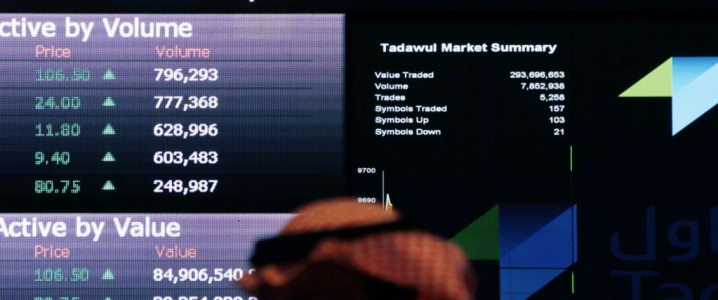For investors looking for stability and income, bonds are usually considered an attractive proposition. In the current environment of rising interest rates, international bonds are likely to outperform U.S. bonds. At first glance, that might seem counterintuitive given that many international bonds offer lower yields than U.S. bonds with some even providing negative yields. Yet, rising yields usually lead to a fall in bond prices that’s usually more than enough to counteract higher yields thus leading to lower overall returns.
Case in point: the Vanguard Total International Bond ETF (BNDX) sports higher total returns compared to the U.S.-focused Vanguard Total Bond Market ETF (BND).
One such class of international bonds is Saudi bonds, which have been roiled by a sharp fall in oil prices as well as the ongoing outrage over the murder of international journalist and Washington Post columnist, Jamal Khashoggi.
Saudi Arabia is extremely reliant on oil, with oil revenue accounting for 90 percent of the nation’s export earnings and 42 percent to GDP. Oil prices have declined sharply, with WTI falling from mid-70s per barrel to mid-50s in less than two months, partly due to the U.S. granting surprise waivers for sanctioned Iran crude.

Source: NASDAQ
Meanwhile, international outrage on the role played by the Saudi government in the murder of Khashoggi in the Saudi consulate in Turkey seemed to increase the risk that the U.S. would impose stiff penalties on the country.
The confluence of these factors has led to Saudi bonds falling quite dramatically with yields climbing. Saudi Arabia’s $5 billion bonds due 2028 have recorded a sharp rise in yield during the last week. The bonds now yield 4.6 percent—significantly higher than the U.S. 3 percent yield for 10-year notes. Related: Can Oil Solve Washington’s Syria Dilemma?
Meanwhile, the kingdom’s five-year credit default swaps jumped 41 percent during the last quarter to 96 basis points, the most among 40 contracts tracked by Bloomberg across the globe.

Source: Bloomberg
Good Entry Point
Despite the murky geopolitical situation in the country, it doesn’t seem very likely that the situation will deteriorate further.
Washington has already announced sanctions against 17 Saudi officials in connection with the murder of Khashoggi. However, it seems unlikely that President Trump’s administration will announce measures that target the Saudi regime more broadly despite some U.S. lawmakers calling for more punitive measures.
On Tuesday, Trump issued an extraordinary statement declaring that the U.S. will remain a steadfast partner to Saudi Arabia despite conceding that crown prince Mohammed bin Salman may have been aware of a plot to kill Khashoggi. Indeed, Trump has gone ahead and thanked Saudi Arabia for lower oil prices in a tweet on Wednesday:

The administration’s willingness to overlook human rights abuses—even the murder of a U.S. citizen—seems to be the latest twist in a tacit deal between Washington and Riyadh where the former is expected to eliminate or reduce Iran’s oil export revenue while the latter continues stabilizing prices in its traditional role as a swing producer. Nobody at this point expects oil prices to collapse to 2014 levels, so that provides a nice floor for investors.
The latest development, therefore, offers a good entry point for bargain hunters who are hoping that Saudi bonds will not continue dropping once they build positions.
But it’s not just Saudi bonds that have recorded rising yields.
Oman and Bahrain, two of the region’s weakest economies, have seen their bonds hit by the oil rout, with Oman bonds now yielding 6.6 percent. Despite the fall in crude prices, Gulf economies are expected to remain strong. GCC (Gulf Cooperation Council) economies are expected to expand 2.4 percent this year and 3 percent in 2019 after contracting in 2017.
By Alex Kimani via Safehaven.com
More Top Reads From Oilprice.com:
- China’s Oil Inventories Rise 416.7% In One Month
- Iran: U.S. Has Failed To Stop Oil Exports
- Oil Slips As Russia Mulls Production Cuts


















